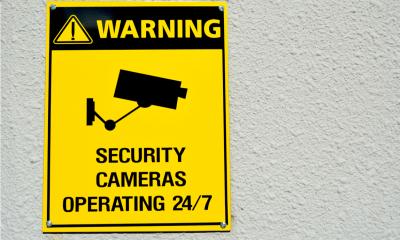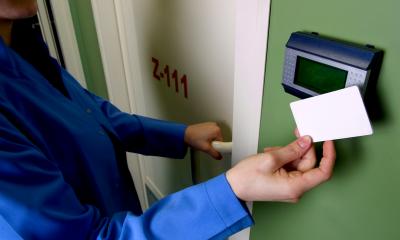
All businesses, whether small or large, need to implement appropriate safety measures and provide a safe working environment for employees. The level of security you will need to implement will depend on the size of your business, any specific risks you face and of course the budget available
No matter what size your business, there are some important basic, common-sense security measures that you can easily and cost-effectively implement to safeguard you staff, equipment and other valuables.
1. Carry out a risk assessment
As soon as you possibly can, assess which areas of your premises could be vulnerable to crime, accident or natural disaster. If you operate from a property on a busy high street, shutters for the windows may be a good idea, while if you are in a remote location, CCTV may be the best way forward. Do your research and identify the places that could be vulnerable and come up with a solution quickly. It may just be that a window or door requires an extra lock, but even that could make a big difference.
2. Give staff safety training
Staff members should have adequate training on safety procedures in case of an emergency. Safety drills need to be practiced regularly and a fire extinguisher should be readily available and tested to ensure it is in working condition. Fire exit doors should be clearly visible and must not be obstructed. You also need to consider the arrangements for any employee who has a disability or additional risk (such as an expectant mother) in the event of an evacuation.
A two-way radio device can be of use in coordinating and communicating in such an event. It is also important to have a list of emergency numbers for the police, ambulance services and the fire brigade to hand and a safety manual or a safety notice pinned up to advise staff of what to do in an emergency.
3. Secure high-value goods
If you keep stock, money or high-value goods (such as laptops or televisions) onsite, it is vital you secure them. In a small business, having high-value items stolen can be disastrous. If money is kept onsite, invest in a good quality safe and make sure you bolt it to the floor. If high volumes of stock or expensive tools or equipment are left overnight, make sure they are stored out of sight and towards the back of your premises, ideally in a room with few or no windows. Heavy-duty locks or bolts are also advisable on any entrance.
4. Fit security lighting and CCTV
Lighting is an effective and cheap way to secure premises. Motion-sensitive lighting will ensure that any dark corners that could provide cover for criminals are illuminated. They will also help enhance surveillance if you have CCTV fitted. Suitable lighting can also help to minimize the risk of accidents.
5. Install an alarm
According to government statistics, shoplifting, assaults and threats were at the highest rate since 2012. 24% of wholesale and retail businesses experienced shoplifting and 10% experienced assaults and threats. These figures mean it is more vital than ever to make sure you are properly protected. They can be pricey, but having a good alarm that will automatically inform the police of a criminal act while it’s happening could one day more than pay for itself. If you already have an alarm, make sure it’s working properly.
6 Tag valuable assets
Security tags enable you to monitor any valuables on your premises, so that if they’re stolen, they are much easier to locate and eventually get back. Label all your goods and log all the details. If something goes missing, you can report it as lost or stolen. Some labels come with built-in trackers, so you can actually see where your goods are and get them back.
Written by Charlie Curtis-Jones for Brentwood Radios, leading supplier of two-way radio communication equipment for business safety needs.
Browse topics: Business premises


